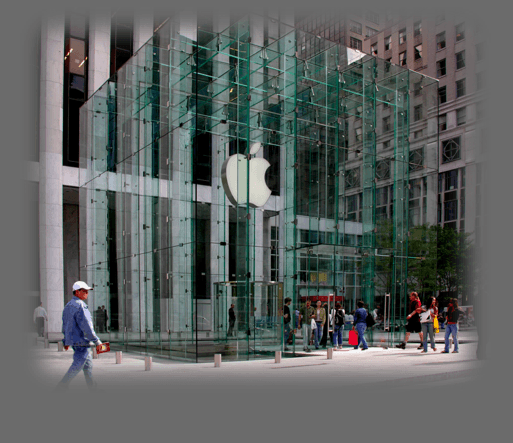Apple has long been a perennial favourite among investors, institutional and amateur ones alike. Its earnings report is one of the most anticipated of the earnings season and you can usually bet on the company surpassing expectations. With other tech companies like Alphabet (Google), Microsoft and Amazon killing it with their earnings reports, all eyes have been on Apple to see if it would follow suit.
Here are the highlights:
- Earnings per share came in at $1.96, beating analyst estimates by $0.08.
- Revenue was up 22.3% from last year to $51.5 billion, beating the consensus by $380 million.
- Guidance for FQ1 sees revenue at $75.5 billion to $77.5 billion, compared with a $77.1 billion consensus.
After digging into the earnings release, here are our top five takeaways.
1. Fiscal 2015 was Apple’s best year ever
Apple set record after record with its F2015 quarterly results and the one ending in September was no exception. Earnings per share increased 38%, mostly due to the company’s aggressive buyback program, and had an operating cash flow of $13.5 billion. The company continues to show no signs of slowdown in iPhone popularity, with iPhone revenue up 36% year over year.
On the year, Apple saw a blistering 28% increase in revenue, which is impressive for a company its size and age. With the holiday season coming up, the new iPhone 6 and 6 Plus and the Apple Watch, along with the new iPad Pro and Apple TV will keep the run alive.
2. Wall Street’s expectations are too high
When a company crushes expectations over and over again, simply beating them doesn’t elicit the same excitement. In this example, Apple handily beat the consensus estimates, but the share price is up only 2% since the report, even losing its initial jump before recovering.
Some may say that guidance is the issue, but Apple management is notoriously conservative with its projections. For example, FQ4 guidance was $49 billion to $51 billion, which turned off investors looking for a $51.1 billion consensus. Lo and behold, the company brought in revenue above both its own projections and the analysts’. The same thing happened the previous quarter. Until investors understand that and ignore their own irrational reliance on analyst expectations, Apple is a buying opportunity.
3. It still needs to find something to replace the iPad
iPad sales didn’t do so hot during the quarter, with sales down 20% from a year ago to 9.9 million. While the company still claims it owns a 73% share of the tablet market, it’s seeing some formidable competition from Amazon with its new $50 Fire tablet.
But why aren’t we talking about the Apple Watch? At this point, it’s hard to consider the Apple Watch a worthy successor to the iPad as one of Apple’s next big things. While the second generation of the device will certainly be much better than the first, it’s not as compelling as the iPad was when it first hit the market.
4. China is still Apple’s target
China has been a topic of discussion for a while now, with its slumping economy and currency devaluation, causing many to worry about whether its consumers may be wary of spending money on luxury items. But during the most recent quarter, Apple’s sales nearly doubled from this time last year to $12.5 billion, with unit sales increasing by 120%. This is surprising considering how many knockoffs of the iPhone exist in the country. But as China’s middle class continues to grow, so does Apple’s hopes of turning it into its top market.
“We’re investing in China for the decades ahead,” Cook said. “Our own view is that China will be Apple’s top market in the world.”
5. Apple has $200 billion in the bank
Talk that the “music will stop eventually” for Apple doesn’t consider the company’s monstrous cash position. Will interest for the iPhone eventually peter out like it’s beginning to with the iPad? Maybe. But it’s not showing those signs anytime soon. Even if it does, it’s in no way a sign that Apple’s on the downturn.
This company has led innovation in the twenty-first century. Who knows what else Tim Cook has up his sleeve? Goodness knows the company has the cash reserves it needs to withstand any lull, regardless of how long it lasts. No, Apple’s not struggling and it won’t anytime soon. Now is the time to buy.
Tradersdna is a leading digital and social media platform for traders and investors. Tradersdna offers premiere resources for trading and investing education, digital resources for personal finance, market analysis and free trading guides. More about TradersDNA Features: What Does It Take to Become an Aggressive Trader? | Everything You Need to Know About White Label Trading Software | Advantages of Automated Forex Trading









